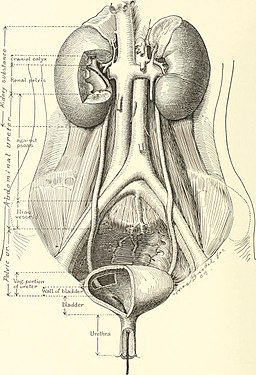Evidence-Based Implementation Guide to Reduce Treatment of Asymptomatic Bacteriuria

 Asymptomatic bacteriuria (ASB) is defined as “isolation of pre-specified quantitative count of bacteria in an appropriately collected urine specimen obtained from a person without symptoms or signs referable to urinary infection“. Despite current recommendations to treat ASB only during pregnancy, prior to transurethral resection of the prostate (TURP), or before other urologic procedures where mucosal bleeding is expected, patients with ASB frequently receive antibiotic therapy in various health care settings.
Asymptomatic bacteriuria (ASB) is defined as “isolation of pre-specified quantitative count of bacteria in an appropriately collected urine specimen obtained from a person without symptoms or signs referable to urinary infection“. Despite current recommendations to treat ASB only during pregnancy, prior to transurethral resection of the prostate (TURP), or before other urologic procedures where mucosal bleeding is expected, patients with ASB frequently receive antibiotic therapy in various health care settings.
Several studies, both randomized and observational, have demonstrated the safety of not treating ASB. Other studies have found ASB treatment may result in patient harms (e.g., allergic reactions, antibiotic-associated diarrhea). Daniel and colleagues recently published a manuscript in JAMA Internal Medicine proposing an evidence-based implementation guide to facilitate the reduction of antibiotic overuse in ASB.
The authors of this manuscript highlighted a number of studies that employed strategies that have shown positive impact in reducing antibiotic therapy for ASB. These strategies were broadly categorized into 4 groups:
— Educational strategies such as distribution of treatment guidelines and pocket cards, posting flyers at computer stations, providing in-person education;
— Audit and feedback such as auditing prior management decision based on urine culture result by specific clinician and providing feedback on management strategy, providing feedback within 72 hours of a positive urine culture result;
— Withholding test result reporting such as withholding urine culture results for patients with indwelling catheters unless ordering physician contact the laboratory; and
— Bundled interventions such as a combination of interventions including education, audit and feedback, policy and protocol development, stakeholder engagement
Based on the success of the interventions described in these studies, Daniel and colleagues proposed an implementation guide as an aid to reduce inappropriate treatment of ASB. This guide included 5 important strategies:
1) Create a QI team and engage stakeholders
2) Provide education
3) Audit and feedback
4) Withholding routine urine test results
5) Develop and implement clinical decision tools and protocols
The authors of this manuscript emphasized that while these interventions have proven track records, health care facilities should prioritize and select strategies based on their needs and resources. In addition, it is important to include a sustainability plan during the planning stage of strategy implementation.
For additional details on the studies cited in this article and the strategies proposed, please read Daniel M, et al. JAMA Intern Med 2017 Dec 11 [Epub ahead of print].
Written by Phil Chung, PharmD, MS, BCPS



